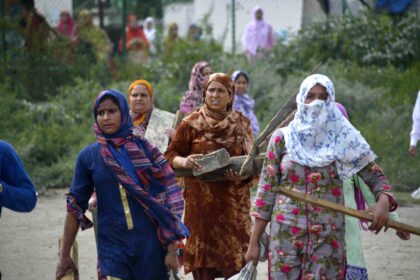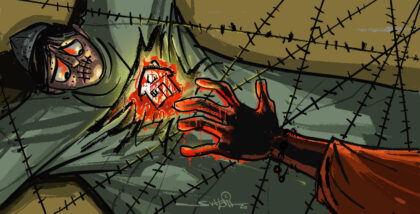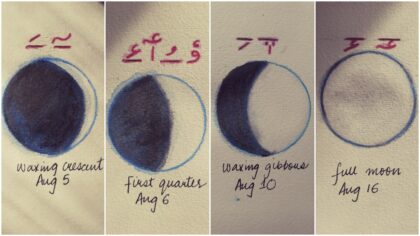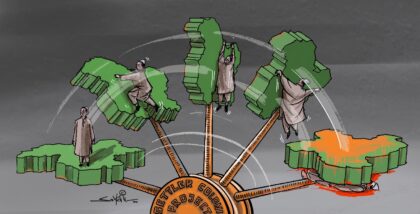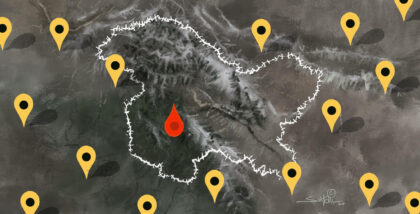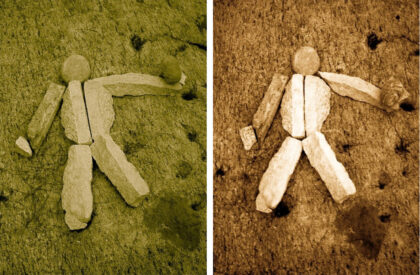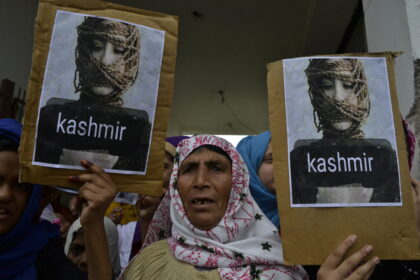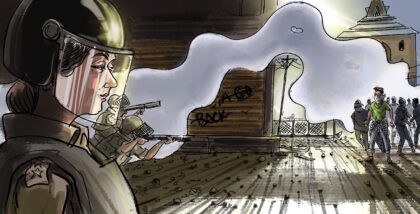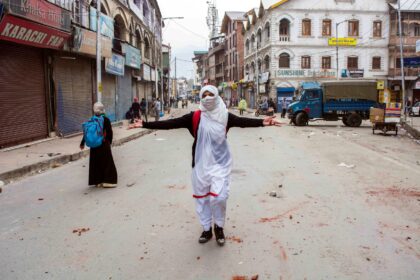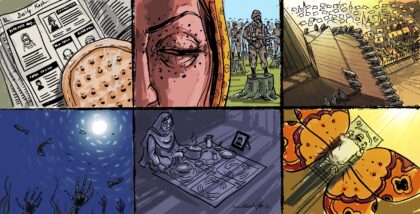 Illustration by Suhail Naqshbandi.
Illustration by Suhail Naqshbandi.
Parvaiz Bukhari and Nawal: “Kashmiri Bella Ciao” by Zanaan Wanaan
Hilal Mir: “Ekla Chalo (Walk Alone)” by Rabindranath Tagore. “When there is so much fear and oppression around, I find it inspiring.”
Mohamad Junaid: “Intesab (Homage),” a poem by Faiz Ahmed Faiz, sung by Nayyara Noor, interspersed with Faiz’s voice. It begins: “Zard patton ka ban jo mera des hai / Dard ki anjuman jo mera des hai.” This translates to “My country, this thicket of yellowed leaves / My country, this assembly of pain.” The full translation can be found here.
The song imagines the country not as a piece of territory but as its people and their struggles. Who is the “thicket of yellowed flowers” and what is the “assembly of pain?” Melancholic office clerks, postal workers, hungry carriage-pullers, sorrowful mothers with inconsolable children, exploited peasants, toiling factory workers, unloved wives, widows, students who work under flickering lamps, and prisoners whose hearts burn with the light of hope. This song was not written about Kashmir, but captures a sentiment most Kashmiris would recognize as their own. Kashmiri revolutionary leader Maqbool Bhat imagined Azadi (freedom), the most resonant Kashmiri aspiration, in its widest possible meaning: “For us, Azadi means not just getting rid of foreign occupation of our beloved motherland, but also to remove hunger, poverty, ignorance, and to overcome social and economic deprivation. One day, we shall achieve that Azadi.”
Mohd Tahir Ganie: “Kasheer” by Ahmer
Mohd Tahir Ganie: “Asaan Gindaan” by Ali Saiffudin
Syed Tajamul Imran: “Noha Khwan Arshid Hussain” by Arsh Rafi. Lyrics: “I have been searching for you my dear Brother / in which place have you been buried.”
Syed Tajamul Imran: “Nundi Bani” by Ishfaq Kawa. “This is indeed the real story of many Kashmiri mothers who lost their loved ones.”
Syed Tajamul Imran: “Yeli Janaan Ralem” by Rahul Wanchoo
